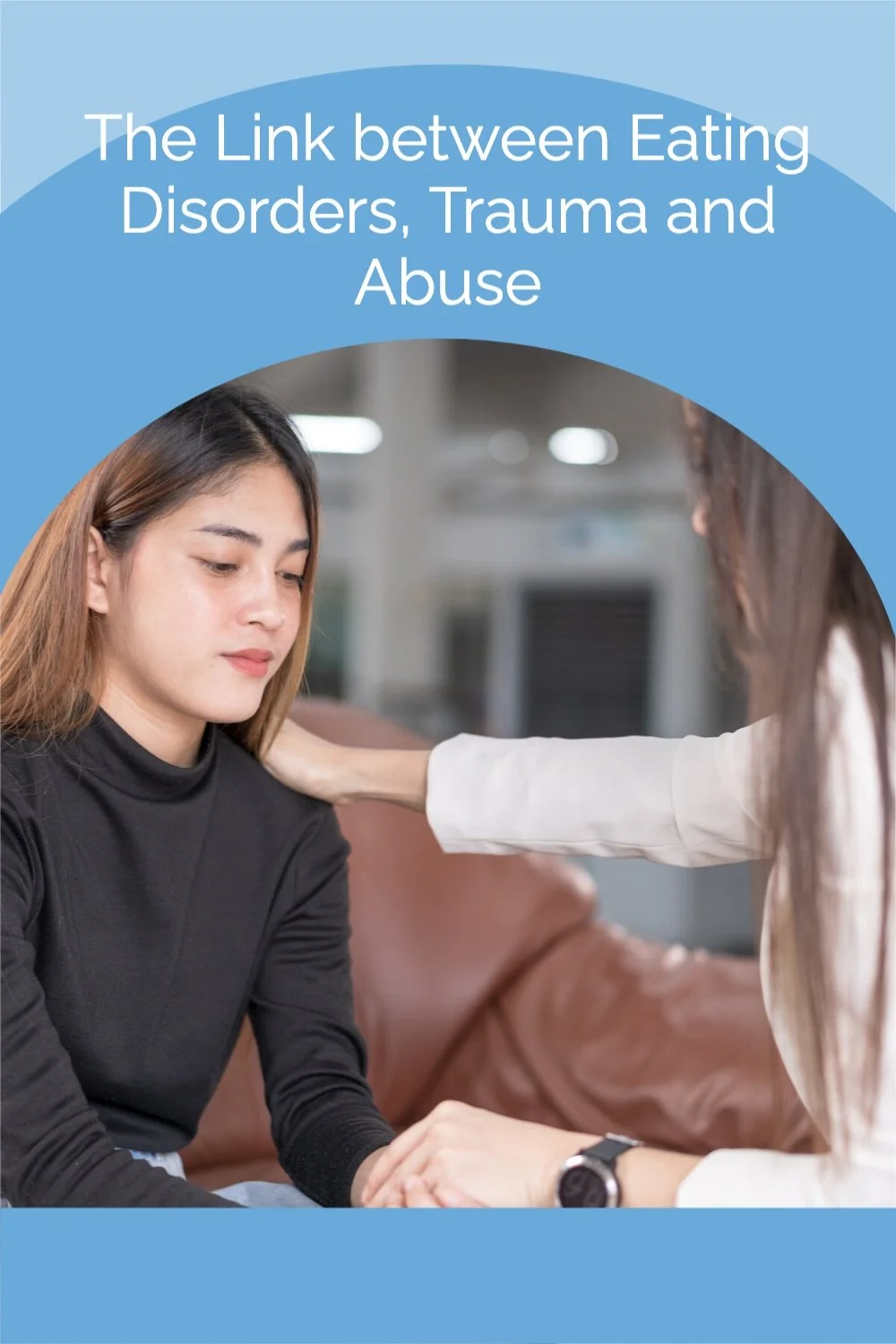Trauma, Abuse and Eating Disorders
If you or someone you know is struggling with eating disorders, please reach out for support from the list of organisations Emergency Support
The Relationship between Sexual Abuse and Eating Disorders
30% of eating disorder patients have been sexually abused in childhood, mostly those who suffer from bulimia nervosa and binge eating disorder. (Behar et all, 2016)
Research has shown that women who struggle with bulimia nervosa report higher rates of childhood sexual abuse than women who do not have bulimia nervosa. (Fischer et al, 2010)
Women who have experienced both childhood sexual abuse and adult rape have extremely high levels of eating disorder symptoms. (Wonderlich et al, 2001)
Post Traumatic Stress Disorder and Eating Disorders
Researchers think there are many people with eating disorders who are also suffering from symptoms of post-traumatic stress disorder, or PTSD. The psychological pain that is often experienced after abuse includes nightmares, intrusive thoughts and emotional numbing (Fischer et al 2010).
“Traumatic experiences, especially those involving interpersonal violence[such as sexual assault], have been found to be a significant risk factor for the development of a variety of psychiatric disorders, including eating disorders, particularly those characterized by bulimic symptoms, such as binge eating and purging,” - Dr. Timothy Breweton
"Understanding the connection between sexual trauma and eating disorders is vital for those working with survivors of sexual assault and individuals recovering from an eating disorder. Offering meaningful support to survivors on their healing journey means seeing them as a whole person and understanding the many ways trauma impacts their daily lives. Similarly, treatment professionals in eating disorder recovery offer more effective support when they recognize and acknowledge how unwanted sexual experiences and trauma can play an underlying role in the development of an eating disorder." Laura Palumbo, Communications Director at the National Sexual Violence Resource Center.
References:
Behar, R, Arancibia, M, Sepulveda, E, Muga, A. Child Sexual Abuse as a Risk Factor in Eating Disorders. Eating Disorders: Prevalence, Risk Factors and Treatment Options. Nova Science Publishers. 2016;149-172.
Fischer S, Stojek M, Hartzell E. Effects of multiple forms of childhood abuse and adult sexual assault on current eating disorder symptoms. Eat Behav. 2010;11(3):190-2. doi:10.1016/j.eatbeh.2010.01.001
Wonderlich SA, Crosby RD, Mitchell JE, et al. Eating disturbance and sexual trauma in childhood and adulthood. Int J Eat Disord. 2001;30(4):401-12. doi:10.1002/eat.1101
Fischer S, Stojek M, Hartzell E. Effects of multiple forms of childhood abuse and adult sexual assault on current eating disorder symptoms. Eat Behav. 2010;11(3):190-2. doi:10.1016/j.eatbeh.2010.01.001 https://www.verywellmind.com/the-influence-of-abuse-trauma-on-disordered-eating-1138267
Sources:


